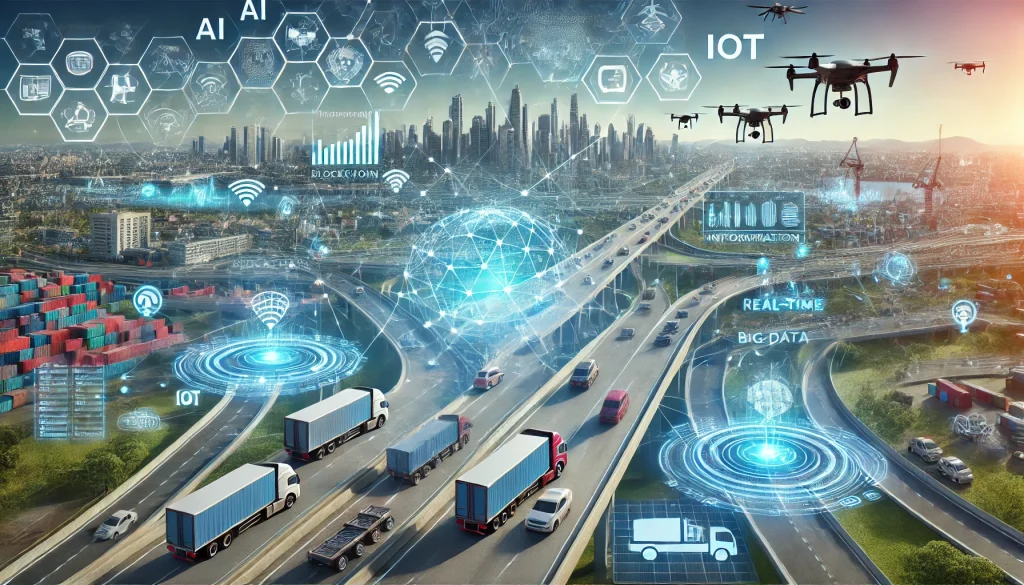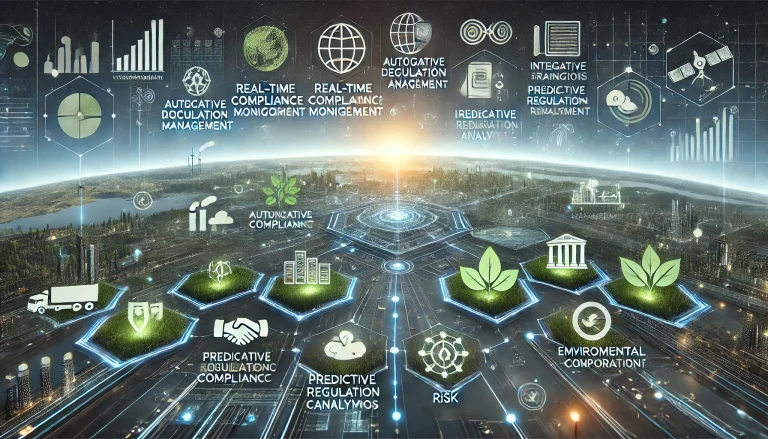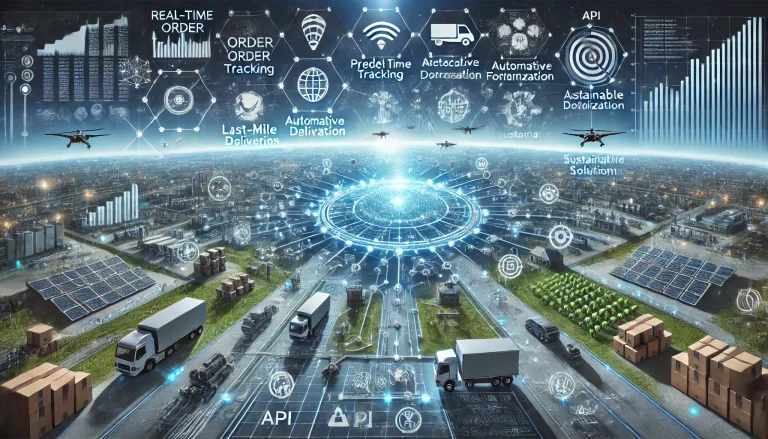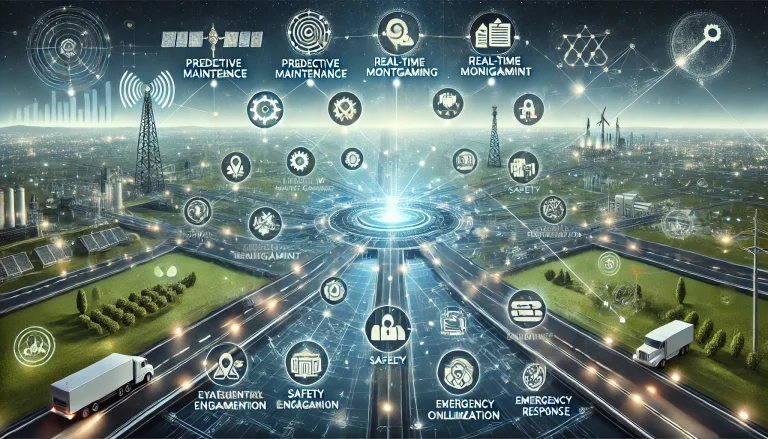Problem Statement:
Customer expectations for faster, more reliable, and transparent services are continually rising in the transportation and logistics sector. Companies must meet these demands while maintaining high service quality, which involves significant investment in customer service, real-time tracking systems, and efficient delivery methods. Balancing these requirements is resource-intensive and demands ongoing innovation to stay competitive in a rapidly evolving market.
Pain Points:
- High Customer Expectations: Increasing demand for faster and more reliable delivery services.
- Transparency Issues: Need for real-time tracking and visibility of shipments.
- Operational Efficiency: Requirement for efficient delivery methods to reduce costs and time.
- Resource Intensity: Significant investment in technology and infrastructure.
- Innovation Pressure: Continuous need to innovate to meet market demands.
- Regulatory Compliance: Navigating varying regulations across different regions.
- Supply Chain Disruptions: Managing and mitigating risks of disruptions in the supply chain.
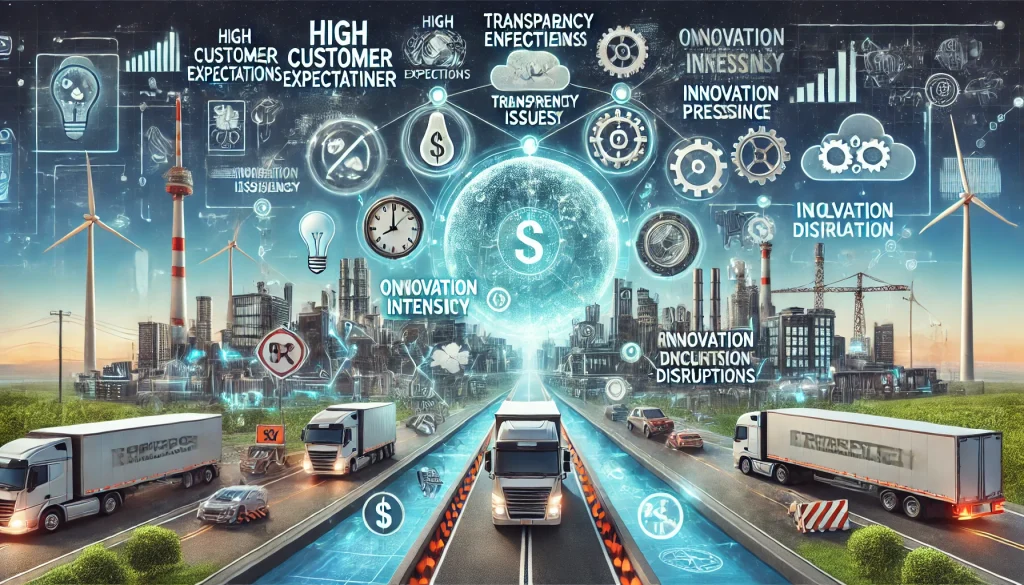
Future Vision:
The future vision for transportation and logistics involves creating an integrated, AI-driven platform that enhances service speed, reliability, and transparency. This platform will offer real-time tracking, predictive analytics for supply chain optimization, and automated customer service through chatbots and virtual assistants. Leveraging advanced technologies like blockchain for secure transactions and IoT for connected devices, the platform will ensure seamless and efficient operations, meeting and exceeding customer expectations.
Use Cases:
- Real-Time Tracking: Provide customers with up-to-the-minute location and status of their shipments.
- Predictive Analytics: Optimize routes and delivery schedules to minimize delays and reduce costs.
- Automated Customer Service: Use AI chatbots to handle inquiries and provide instant updates.
- Blockchain for Security: Ensure secure and transparent transactions and documentation.
- IoT-Enabled Fleet Management: Monitor vehicle conditions and performance in real-time for preventive maintenance.
Target Users and Stakeholders:
- Logistics Companies: Enhance operational efficiency and customer satisfaction.
- Retailers and E-commerce: Ensure timely and reliable delivery of products.
- Manufacturers: Optimize supply chain and inventory management.
- End Customers: Gain real-time visibility and reliability in their deliveries.
- Investors: Opportunities to invest in innovative logistics solutions.
Key Competition:
- DHL: Known for its extensive global logistics network and innovative solutions.
- FedEx: Offers comprehensive tracking and fast delivery services.
- UPS: Focuses on reliability and customer service with advanced tracking systems.
- Amazon Logistics: Utilizes technology for efficient delivery and customer satisfaction.
Products/Services:
- AI-Driven Tracking Systems: Real-time visibility and predictive analytics for shipments.
- Customer Service Automation: AI chatbots and virtual assistants for handling customer queries.
- Blockchain Solutions: Secure and transparent transaction and documentation processes.
- IoT Fleet Management: Real-time monitoring and maintenance of delivery vehicles.
- Predictive Route Optimization: Advanced algorithms for optimizing delivery routes and schedules.
Active Startups:
- Convoy: Provides digital freight network solutions for efficient and transparent shipping.
- FourKites: Specializes in real-time tracking and visibility solutions for supply chains.
- Shipwell: Offers a unified platform for freight, tracking, and transportation management.
- Loadsmart: Utilizes AI to optimize freight booking and delivery processes.
- Onfleet: Focuses on last-mile delivery management and real-time tracking.
Ongoing Work in Related Areas:
- AI and Machine Learning: Development of predictive analytics and automation tools.
- Blockchain Technology: Enhancing security and transparency in logistics.
- Internet of Things (IoT): Connecting devices for real-time monitoring and management.
- Big Data Analytics: Leveraging data to improve efficiency and decision-making in logistics.
- Autonomous Vehicles: Research and development of self-driving delivery vehicles.
Recent Investment:
- $200 million in AI and machine learning startups focusing on logistics.
- $150 million in blockchain technology for supply chain security.
- $100 million in IoT solutions for real-time tracking and fleet management.
- $80 million in autonomous vehicle technology for logistics.
Market Maturity:
The transportation and logistics market is rapidly maturing, with increasing adoption of advanced technologies. Companies are investing heavily in AI, blockchain, IoT, and autonomous vehicles to enhance service delivery and operational efficiency. The market is characterized by intense competition and continuous innovation, driving the need for integrated and scalable solutions.
Summary:
To meet the rising customer expectations for faster, more reliable, and transparent services, the transportation and logistics sector must embrace innovation and technology. Developing an integrated platform that leverages AI, blockchain, IoT, and predictive analytics can transform operations and deliver superior customer experiences. This platform will enable real-time tracking, optimize supply chains, automate customer service, and ensure secure transactions, positioning companies to thrive in the evolving market landscape.
